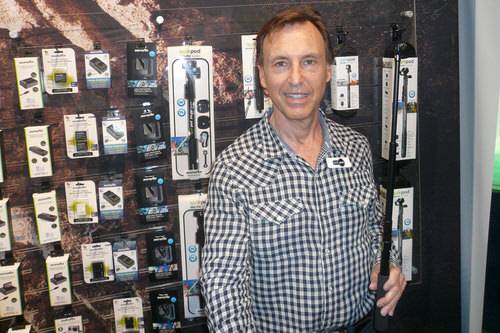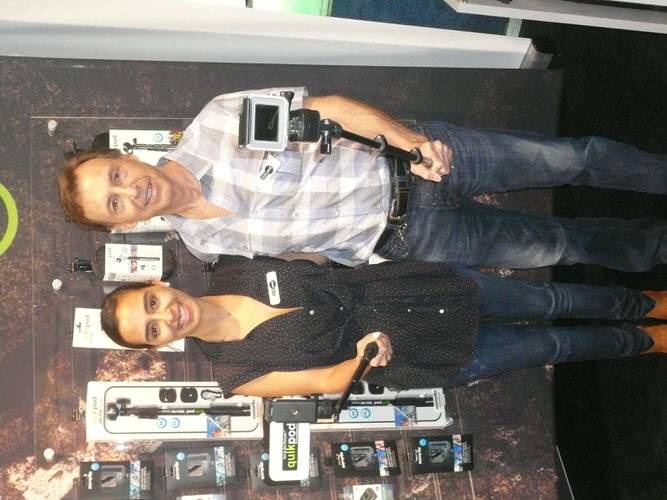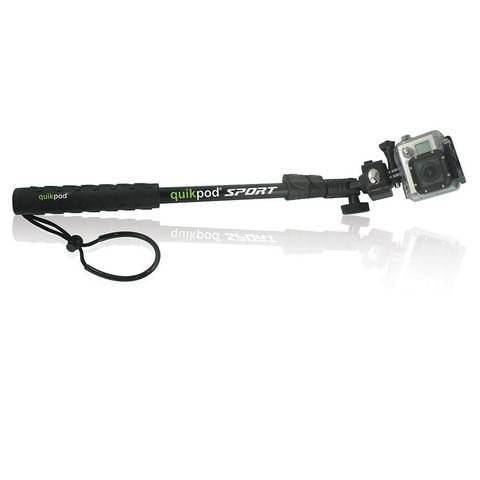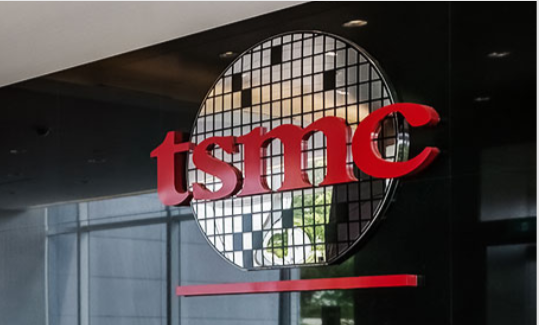
Wayne Fromm spent roughly a decade hustling to get his camera monopod off the ground. But, the inventor says, he “met resistance.” People just didn’t get the concept of using an extendible pole to shoot photos of themselves.
They do now. Last holiday season, shoppers scooped up some 100,000 selfie sticks, and they are all but inescapable at tourist hot spots and big tech conventions. They seem to be everywhere and in various incarnations. Too bad—for him, at least—that few of them are Fromm’s.
See also: How To Pick A Selfie Stick
It’s a conundrum gadget makers know all too well. Pour time and effort into a product, only to see cheaper knock-offs flood the market. Here’s how Fromm says it happened to him.
It’s All In The Timing
When Fromm vacationed with his daughter in Florence in 2002, he didn’t relish the thought of setting the camera down for a timed shot or asking strangers to snap a photo of them. A long-time product developer with a deep background in the toy industry, he eventually came up with a better way.
“When I first brought it out, it was called the world’s first handheld extendible monopod,” said Fromm. While the name’s not as catchy as “selfie stick,” he knew the idea was sound. So Fromm sweated through more than a hundred versions of what he would eventually call the Quik Pod. He filed utility and design patents going back to 2005, for what was described then as “Apparatus for supporting a camera and method for using the apparatus.”
See also: 7 Tips For Great Selfies
Let’s get one thing straight: He knows he didn’t invent the idea of a camera on a stick. That general idea goes back decades.
Found in a 1995 book of "useless" japanese inventions: the selfie stick. pic.twitter.com/FI49ysDp2i
— Tess Rinearson (@_tessr) January 5, 2015
The concept might even go back further—say, back nearly a century.
Fromm referenced those predecessors in his patents, he told me. But for his selfie stick, he focused specifically on digital cameras and an extendible pole that can also trigger the shutter—pretty much the same as today’s popular versions. He also patented versions that use an angled mirror, a feature offered in several current items.
Sounds like a case of right product, utterly wrong time. When he started filing those patents in 2005, the iPhone didn’t exist outside of Apple’s research labs, and Instagram wasn’t even a glimmer in its creators’ eyes. At the time, no one could have imagined everyone would have cameras in their pockets and purses, or that selfie photography would become a cultural phenomenon.
See also: Me, My Selfie And I
Fromm hit the bricks, demonstrating his product over and over again for years, but failed to get traction.
What’s worse, in 2008, he made a regrettable decision. “I agreed to sell some during the Asian Olympics,” he said, referring to the 2008 Beijing Olympic Games. “That was a mistake.” Fromm essentially hand-delivered his product to the home turf of manufacturers that would later mass produce their own cheap knock-offs.
Carry A Big Stick

“The selfie stick today would not exist if it was not for me,” said Fromm. “I spent more than 10 years promoting, showing, demonstrating it, going from New York City—from [retailers] B&H to J&R, QVC, Home Shopping Channel….”
In that way, perhaps Quik Pod should have been as synonymous with selfie sticks as Kleenex is with tissues or Xerox is with photocopies. Instead, the brand looks like one of numerous me-too products on the market. Now, cheap selfie sticks line the real and digital shelves everywhere from Walmart and JCPenny, to eBay, Amazon and other online retailers, not to mention innumerable overseas distributors.
Fromm thinks he has proof that they ripped him off: “They [even] stole my pictures,” he said. “They have pictures of my daughter on the package. Basically, it’s just wholesale theft of the invention and all the photoshoots that we did, so it’s not some coincidence.”
His exasperation is plain. He followed the rules—filing his patents, paying Bluetooth’s Special Interest Group to license the wireless technology, and met FCC approval. Meanwhile, these “cheaters” copied him and sidestepped government approval, flouting U.S. or South Korean law. “They’re just stealing programming,” he said. “We spent a lot of time coding and programming, paying license fees and paying royalties.”

The longer we talk, the more bitter he sounds. But the copycats couldn’t totally derail him. He told me his Quik Pods have had success in their own right. Over the years, he has gotten celebrity endorsements and now caters to professional users looking for a quality product that can “withstand everything from the arctic weather to the sahara, to the bottom of the ocean bed,” he said. Some of his current products support action cams like the GoPro.
He’s also going after the imitators. Fromm is in the middle of dozens of lawsuits to protect his intellectual property. He’ll have an uphill battle, though. This is, after all, a world in which even Apple couldn’t stop Apple Watch knock-offs from beating it to the punch.
In other words, Fromm is going to need a really, really big stick.
Photos of Wayne Fromm courtesy of Wayne Fromm; Quik Pods product photo courtesy of Quik Pods










